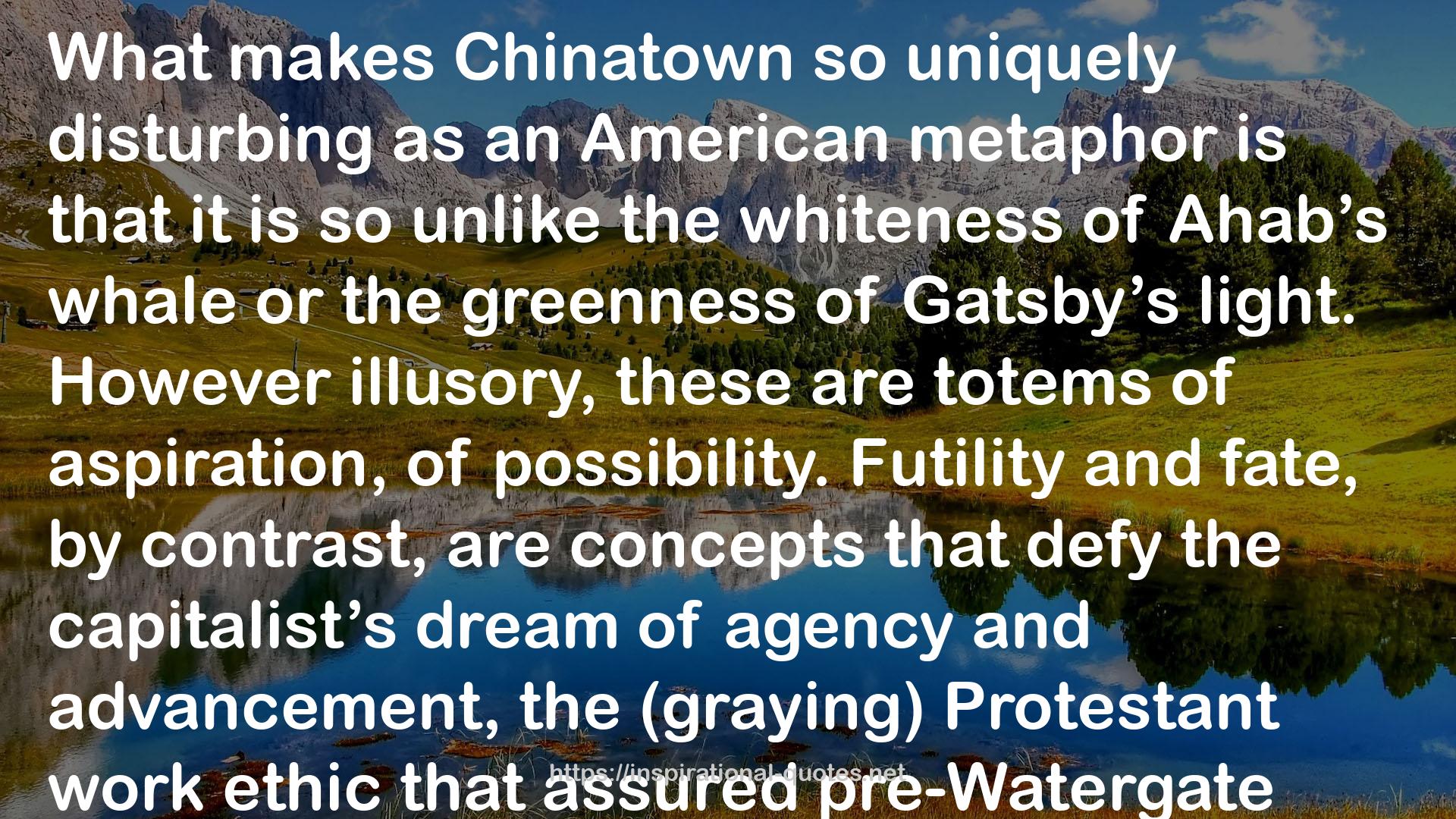" What makes Chinatown so uniquely disturbing as an American metaphor is that it is so unlike the whiteness of Ahab’s whale or the greenness of Gatsby’s light. However illusory, these are totems of aspiration, of possibility. Futility and fate, by contrast, are concepts that defy the capitalist’s dream of agency and advancement, the (graying) Protestant work ethic that assured pre-Watergate Americans that life was linear, not cyclical, and the game wasn’t rigged against them. It is no wonder, then, that Towne’s metaphor should borrow its desolation from Polanski, a European. “The American has not yet assimilated psychologically the disappearance of his own geographical frontier,” wrote the philosopher William Barrett in 1962. “His spiritual horizon is still the limitless play of human possibilities, and as yet he has not lived through the crucial experience of human finitude.” A decade after this writing, that spiritual horizon reached its finitude in Vietnam and Watergate, and symbolically in Los Angeles, the geographic end of America. As Towne foresaw, the only place left to go was up—up to The Sting, to “Happy Days,” Bogdanovich’s At Long Last Love, to “a mix of nostalgia and parody,” Kael wrote, the mass denial of the terrible truths Gittes was powerless to undo. "
― Sam Wasson , The Big Goodbye: Chinatown and the Last Years of Hollywood
